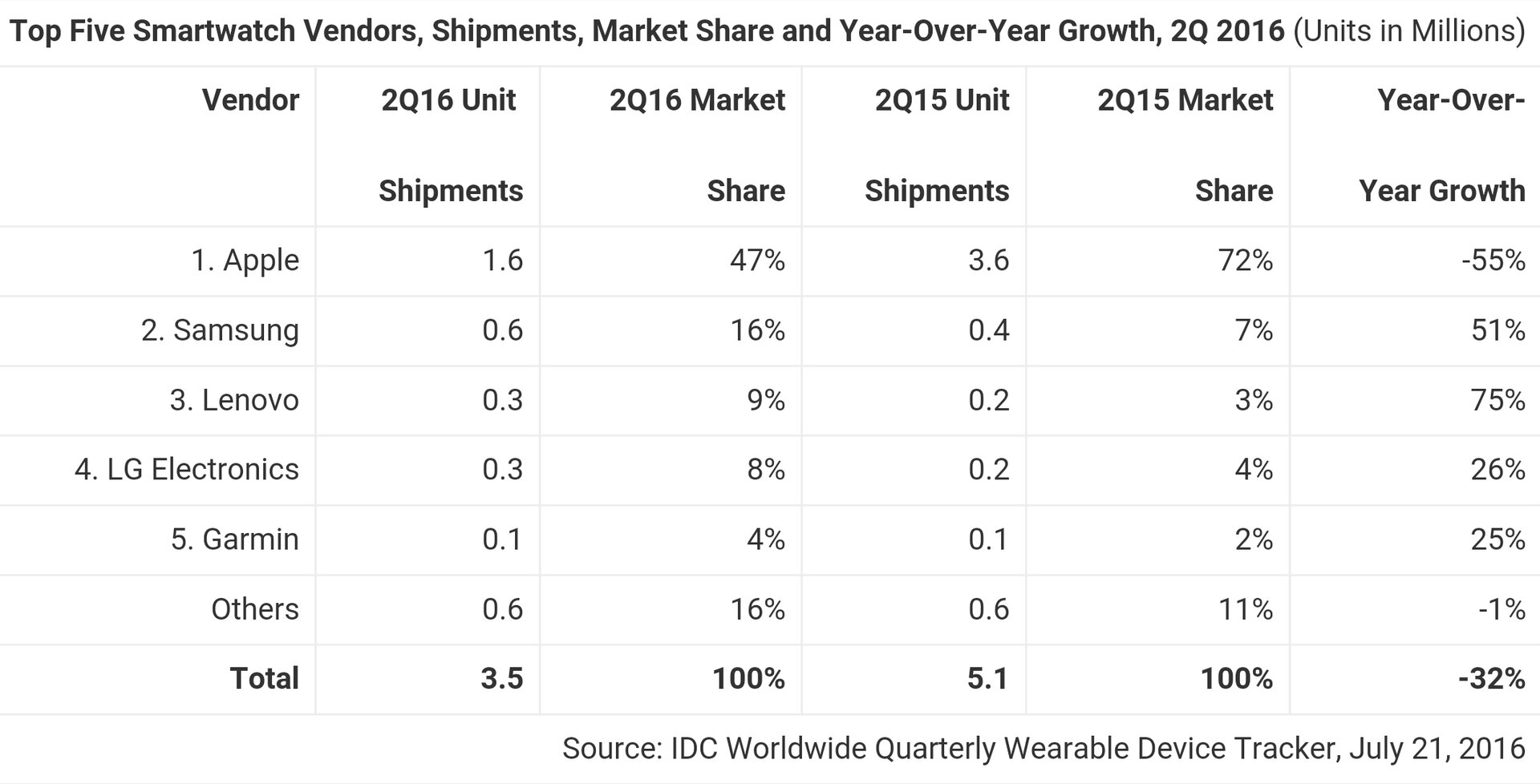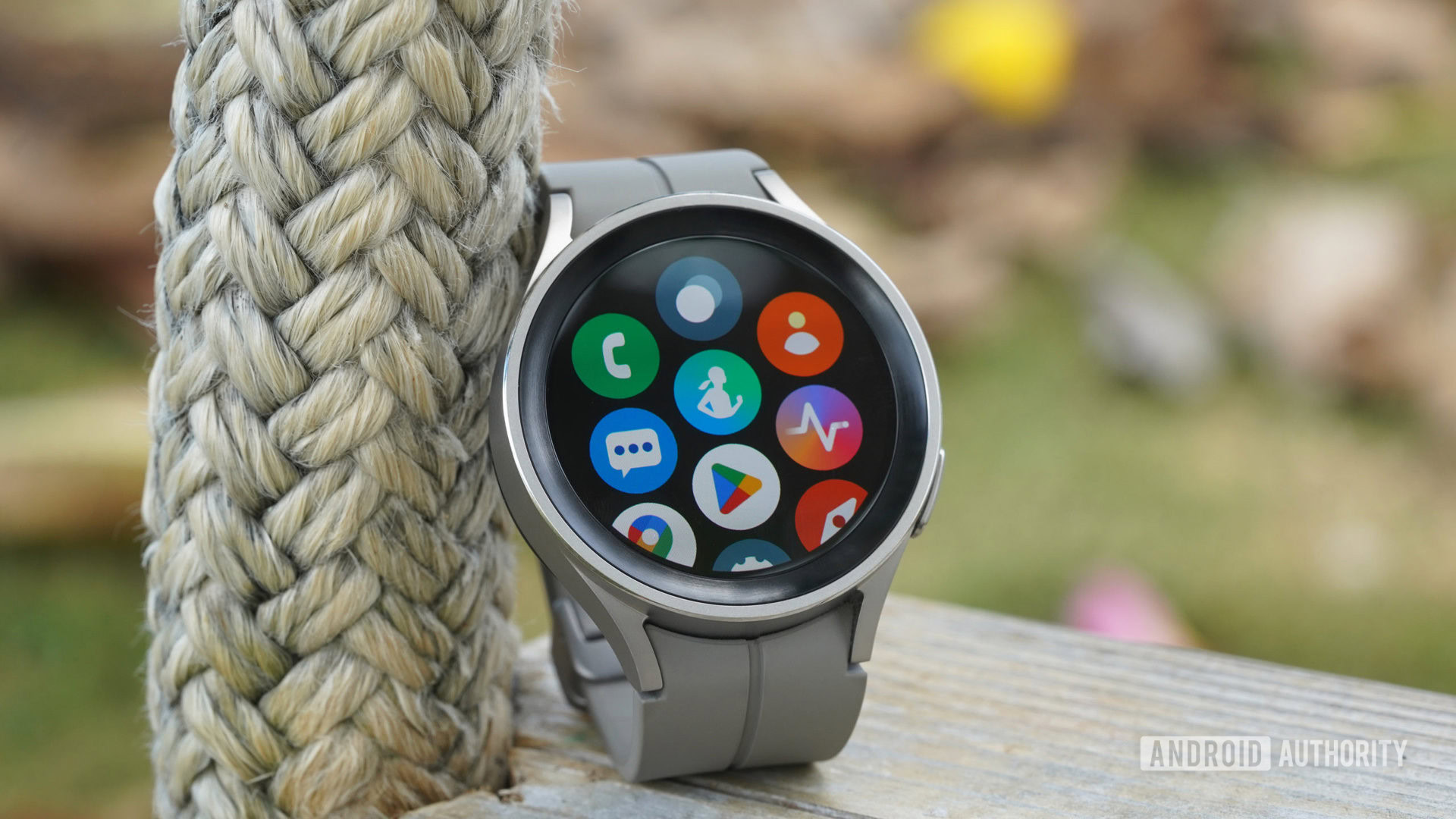Affiliate links on Android Authority may earn us a commission. Learn more.
Samsung doubles wearable market share as Apple's plummets
Published onJuly 23, 2016

The International Data Corporation published its Worldwide Quarterly Wearable Device Tracker a few days ago, and according to the figures, it seems as though Samsung is slowly yet steadily catching up to Apple.

Apple’s total shipments declined from 3.6 million units in Q2 of 2015 to 1.6 million units during this year’s second quarter. On the other hand, Samsung seems to be faring quite well with 0.6 million units shipped this past quarter, compared to 0.4 million last year.
[related_videos title=”Gear wearables in video:” align=”left” type=”custom” videos=”702431,696568,650695,646865″]For Samsung, its Tizen-based Gear S2 lineup has obviously been a huge factor in its growth in the wearable market. Offering two distinct designs and offering data-enabled versions through American carriers were a huge part of Samsung’s strategy and will continue to be so.
Essentially, Samsung managed to double its market share over a year, but we shouldn’t draw any conclusions just yet. While Apple’s year-over-year growth dropped by 55%, it still held the top rank by accounting for nearly half of the total wearable devices shipped this past quarter.
In fact, Apple remains the market leader by a large margin, and its presence largely dictates the wearable market. So it shouldn’t come as a surprise that a decline in Apple’s wearable sales ultimately means a decline in the entire market.
The IDC predicts that while the wearable market isn’t likely to grow much this year:
continued platform development, cellular connectivity, and an increasing number of applications all point to a smartwatch market that will be constantly changing. These will appeal to a broader market, ultimately leading to a growing market (in 2017)
That’s not to say, however, that nothing exciting is going to happen in the wearable market this year. Samsung is expected to unveil the Gear S3 at IFA 2016 in September, and Apple is set to release WatchOS 3 later this year and introduce the next generation Apple Watch.
And we mustn’t forget – though so far we haven’t seen much market presence from traditional watchmakers – companies like Casio or Tag Heuer will continue to release their own smartwatches, and with their expertise and reputation, their devices could have a huge appeal.

Do you own a smartwatch or plan on getting one? What are some of the most important factors in choosing a wearable device? Let us know in the comments below!